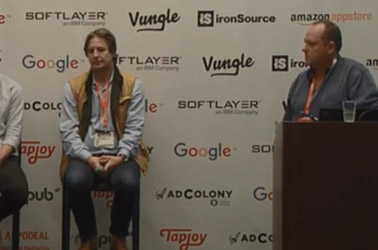GAME FOR A CHALLENGE
Patrick Sweeney and his firm, IE Law Group, handle legal issues for video game companies.
In preparation for a meeting with clients, Patrick Sweeney dresses for the occasion by ditching the suit and tie in favor of a T-shirt and jeans.
“Our clients are more tech-focused, more casual — I think they’d be taken aback if they ever saw me wearing a tie,” Sweeney said.
Sweeney and his firm, IE Law Group, have carved a niche in the legal realm of video games, a specialty that tends to run the gamut in terms of the practice areas involved. Sweeney considers himself an industry specialist more than a specialist in any particular area of law.
The structure of the firm and the wealth of experience he’s built in the field typically allow him to help a client all the way from start to shelf, Sweeney said.
“Your average game is going to have probably 15 to 20 different contractual relationships, depending on the type of game you’re making,” Sweeney said. “There’s a lot of moving parts to producing a game — from the idea stage to a consumer actually playing it — so I help to shepherd them through.”
That means that Sweeney’s clients won’t typically have to deal with any lawyer other than himself or one of the three associates he keeps on staff, making the process more streamlined and ultimately less costly.
A recent deal Sweeney helped broker — which involved Sweeney on one side of the table and a dozen lawyers on the other — illustrates the point.
“I don’t think they got 12 times the value. They certainly got more than 12 times the bill,” Sweeney said.
Recently, he helped a team of four that had broken off from a large video game company start their own venture, helping them find and negotiate a publishing deal for a new entity, securing copyrights and trademarks for in-game assets and helping establish an employee stock plan for hiring practices.
If a company is to succeed, Sweeney said, most of these things will need to be done at the outset, so having someone intimately familiar with everything you’d need to start a video game company is key.
“Just the expertise needed in negotiating the funding part alone, it wouldn’t have gone nearly as smoothly, because this is a company I’ve negotiated a bunch of deals with,” Sweeney said.
“I know the lawyer on the other side, so we were able to cut through a lot of the junk that I think a lot of the big firms who haven’t done this before might get bogged down on a bit,” he added.
Jeff Hilbert, chief business development officer for game studio First Strike Games, said the time Sweeney has spent in the industry and the number of deals he’s done allow him to get to the heart of most disputes right from the outset.
“Patrick gets involved with the developers and the publishers making the game, so he actually understands the issues they’re facing and spends the time to understand the party’s concerns,” Hilbert said.
“The parties might sound like they disagree, but Patrick can take a step back and say, ‘What’s your issue, what’re you trying to dig into here?’ And it’ll turn out that both sides have the exact same objective,” he added.
Sweeney has been involved in the world of video game law since the late 1990s, when he served as general counsel for Vivendi Games, which would later become one of the biggest video game companies in the world, Activision Blizzard Inc.
He moved into private practice in 2004, where he helped several large firms build up their own games practice.
Sweeney said he took a gamble about three years ago, abandoning the relative safety of a large firm to strike out on his own with IE Law Group.
“It occurred to me that most of my clients don’t care so much about the name on the door or at the top of the bill — they care about the level of expertise that they’re getting and making sure they’re able to contact the right person,” Sweeney said.
One of the highlights of working in the games industry is the clientele. He said they tend to be more casual and creative than most. Many of the persons-of-contact for the firm’s 130 active game industry clients have become his close friends outside of work.
“I love working with people and seeing their passions and ideas come to fruition. Seeing something on the shelf or playing a game and seeing that vision come to life is a really awesome and really gratifying feeling,” Sweeney said.
Drew Boortz, vice president and former general counsel for games company Nexon America, said he’s known Sweeney since working together in the games practice at Reed Smith LLP.
Having an outside counsel who’s not only a friend, but one who is intimately familiar with the inner workings of the games business, has been an invaluable resource, he said.
“The video game industry is highly specialized, to the same degree the movie business is, and having someone who lives and breathes this business day in and day out is good for a number of reasons,” Boortz said.
“Someone coming in from the outside would not necessarily have the ability to pick up a phone and reach four to five key industry players and get answers and make the necessary connections,” he added. “That’s what a great video game lawyer can do, and Patrick is absolutely at the pinnacle of that.”
As president of the Video Game Bar Association, it’s important for Sweeney to know what the next big issue will be. Currently, he’s keeping his eye on developments in the space of virtual and augmented reality.
“At the end of the day, new and innovative content is going to find a way to get to the consumer. If you’re able to find it, it’s a question of marrying them up to the right technology or the right distribution platform or financing structure and getting that content out there,” Sweeney said.




0 Comments